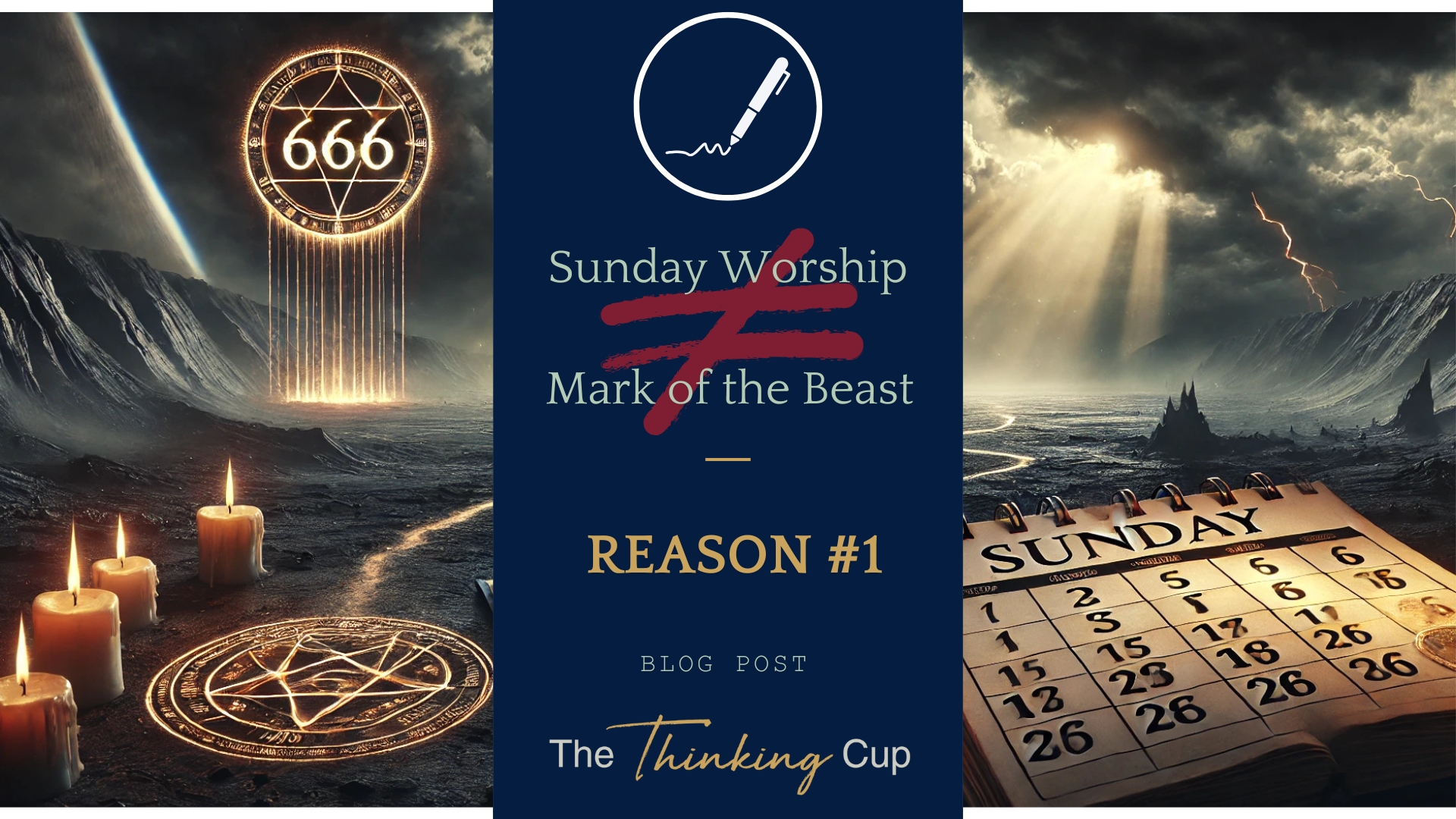Reason #1 – The Biblical Context of Revelation 13
Let’s look closely at Revelation 13:15-17,
“And it (the second beast) was allowed to give breath to the image of the beast, so that the image of the beast might even speak and might cause those who would not worship the image of the beast to be slain. Also it causes all, both small and great, both rich and poor, both free and slave, to be marked on the right hand or the forehead, so that no one can buy or sell unless he has the mark, that is, the name of the beast or the number of its name.” (Revelation 13:15–17, ESV)
These verses describe the Mark of the Beast as something imposed on “the right hand or the forehead,” enabling participation in economic activities, buying and selling. However, the passage has no explicit connection between this mark and a specific day of worship, such as Sunday. Instead, Revelation’s primary focus is on allegiance and worship directed toward the Beast, which symbolizes oppressive systems of power that oppose God’s authority. The symbolism of the mark echoes earlier biblical texts, such as Deuteronomy 6:6-8, where God’s commandments are metaphorically described as being “on your hand and forehead.”
“And these words that I command you today shall be on your heart. You shall teach them diligently to your children, and shall talk of them when you sit in your house, and when you walk by the way, and when you lie down, and when you rise. You shall bind them as a sign on your hand, and they shall be as frontlets between your eyes.” (Deuteronomy 6:6–8, ESV)
This parallel suggests that the Mark of the Beast represents a symbolic, not physical, allegiance to anti-God forces—a deliberate choice to follow these powers rather than God—rather than a specific practice like Sunday worship.
One might ask a few simple question:
-
- Are we, as Christians, able to worship God on any day?
- Does God only accept worship on specific days?
Worship and loyalty are at the center of Revelation 13. While the Sabbath was set apart as holy in the context of the Jewish culture, there are clear Biblical texts that point to Christians worshiping and honoring God on other days of the week. (Acts 2:46-47, 1 Thessalonians 5:16-18)
“And day by day, attending the temple together and breaking bread in their homes, they received their food with glad and generous hearts, praising God and having favor with all the people. And the Lord added to their number day by day those who were being saved.” (Acts 2:46–47, ESV)
Remember, we are talking about praising and worshiping God on other days. Paul seems to be pretty clear that we should be doing this EVERY day:
“Rejoice always, pray without ceasing, give thanks in all circumstances; for this is the will of God in Christ Jesus for you.” (1 Thessalonians 5:16–18, ESV)
I shouldn’t need to remind the reader of Paul’s arguement in Romans with regards to the observancec of Jewish Sabbath’s, Jewish Christian worship days, or other Gentile Christian worship days:
“One person esteems one day as better than another, while another esteems all days alike. Each one should be fully convinced in his own mind. The one who observes the day, observes it in honor of the Lord. The one who eats, eats in honor of the Lord, since he gives thanks to God, while the one who abstains, abstains in honor of the Lord and gives thanks to God.” (Romans 14:5–6, ESV)
Not to mention that even in the context of the Judaic system, many of the ‘Sabbaths’ didn’t even fall on Saturday. But I digress…




0 Comments